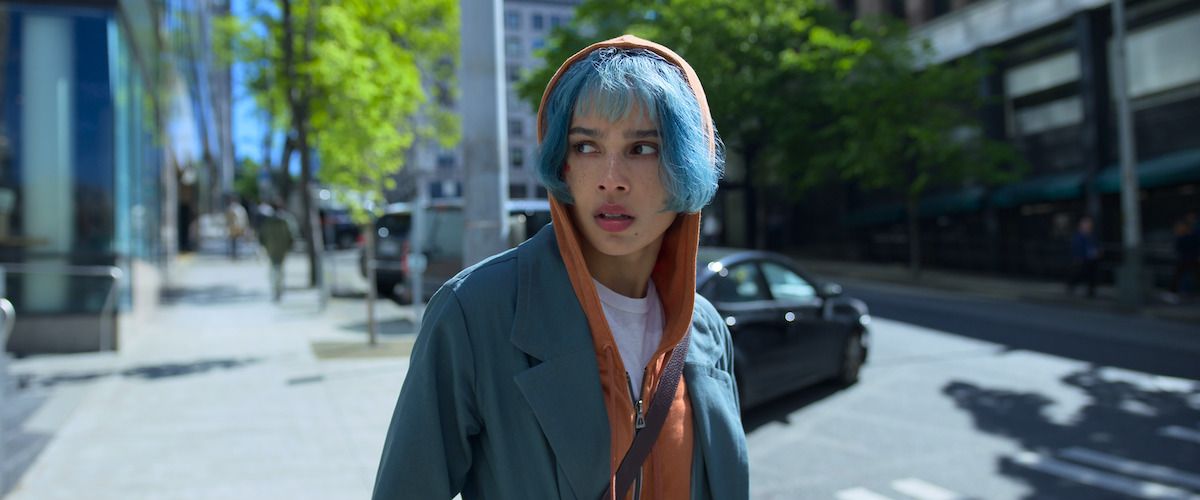
Technology has become an increasingly important part of everyday lives, even if these devices and programs are not as secure as one may think. In 2021, Facebook revealed that roughly 533 million users had a data breach involving them occur before 2019, one that exposed addresses, phone numbers, locations, and much more to hackers. Facebook, in this case, chose not to inform any of the victims of this breach. This is not the first time a company like Facebook has had a breach like this.
On the other hand, there are some realities from the pandemic that some may not want to ever relive. Endless Zoom interviews, dentist appointments, children and pets barge in view, bosses wear no pants, texting while on therapy and work calls. Mental health and substance abuse became major concerns during the pandemic and not just with adults. Children were also majorly affected by the conditions created by the pandemic, leading to mental health crises unlike anything seen before. Spurred by the impacts of isolation, fear, and anxiety of public spaces, especially crowded ones, was on the rise.
MOVIEWEB VIDEO OF THE DAY
Steven Soderbergh, who won the Academy Award for Best Director in 2000 for his film Traffic, has merged technology and the impacts of the pandemic to direct the movie Kimi for HBO Max. His previous films have been quite good, but Kimi takes his style to an entirely new level. Every shot of this movie builds into something bigger, creating a storyline that shifts from what could be a melodrama into a thriller. In ninety minutes, this tightly woven script morphs into commentary about corporations, technology, and the dark side of being a tech worker at the bottom of the totem pole. Kimi is a modest film that does not need a flashy budget or visual effects; it serves as a reminder about what filmmaking can do with so little.
Zoë Kravitz in the Lead Role
HBO Max
Zoë Kravitz, fresh on her run as Catwoman in 2022’s The Batman, stars in Kimi as Angela Childs. She works for a fictional company called Amygdala Corporation. At Amygdala, Angela is an interpreter for their voice stream system Kimi. Kimi serves as a personal assistant and is eerily reminiscent of Amazon’s Alexa and Apple’s Siri. Angela, a former employee for Facebook, seems content with her job and never leaves her home. Perhaps that would be normal at the peak of the pandemic in Seattle, but as she steps outside into the real world, many people are still on with their daily lives. Many of them are maskless, making this seem like it is just Angela trapped in this world.
There is a lockdown romance between Angela and a man who lives in the building across from her. Her mother disapproves of this when video chatting with Angela. “Did you look at that Turn2Me group,” her mother asks, and Angela rolls her eyes as if everything is fine. But it’s not—Angela is seen taking pills, and when she tries to leave her house, she finds her unable to turn the key and step into the hallway. Even as she sits alone in her spacious Seattle studio at night watching commercials of couples dancing in a kitchen, her loneliness is unable to drive her into action and conquer her agoraphobia.
Related: Halle Berry Says Zoe Kravitz Will Be an ‘Amazing Catwoman’ in The Batman
But what seems to be a tortured video diary from the COVID-19 pandemic quickly takes a dark turn. One night Angela asks Kimi to play her a music stream. Aggressive techno music begins to play, but hidden dialogue lingers underneath the surface: a woman is being attacked. Angela tells her supervisor, who does not want to get involved in anything that sounds like a crime, which leads her to investigate the case on her own. So begins the commentary on the companies running this show.
Angela has to maneuver through several moments of corporate fluff and PR-related statements, only to find herself at the center of a conspiracy. She was once a regular worker doing her job, but when she stumbles upon this audio, she gets tangled in a lethal game played by higher-ups. Suddenly she is no longer a relatable Millennial software engineer and instead someone placed into a role of great but dangerous significance. There are a few moments to reel the viewer back in with certain issues. Because Angela is a Black woman, she is subjected to being considered mentally ill by her superiors, has her address looked up to by men, and witnesses her white female boss’ performative sympathy.
Kimi is Always Being Watched
Kimi is unique because the vast majority of the movie takes place in Angela’s apartment. For a software engineer living alone in Seattle, her apartment is quite spacious with big windows, allowing anyone the chance to peer in if they wanted to. It is this constant surveillance that adds an enhanced sense of paranoia. Whether it is Kimi affirming that she is there, or a man drinking his coffee while staring out the window each morning, something is always watching or listening. The first time she leaves her house, someone from the apartment across from her even watches with binoculars.
HBO Max
Angela is physically isolated for most of the movie, outside her romantic fling, and whenever she is on a FaceTime call with her mother or chatting with her therapist, the camera cuts back and forth between the two parties involved as if they were both physically present on the screen. The most unsettling part of the movie is how easily privacy is invaded through technology. The movie’s driving force is how Kimi, an inanimate object, was the sole witness to a crime and recorded the audio.
The camera, too, rarely leaves Angela’s scope. Sometimes it shifts into her line of vision, what she sees from outside the window or to another individual trying to track her movements. Because the camera is so tightly wound to Angela’s narrative, the film feels as if it is entering her mindset. The world outside is too bright with too many people and as a higher-up at the company, played by Rita Wilson, suggests that maybe Angela is unstable because she has a history of mental health problems, there is a distinct sense of empathy for her.
Related: Best Movies About Pandemics and Viruses, Ranked
Angela’s job in itself is an invasion of privacy; she sorts through the machine’s audio recordings to try and improve its commands. Angela’s eye scan is taken from her conference calls with her workplace, even though she never consented to this happening, and this notion of consent is taken even further as the movie spirals into a sequence of events unfathomable to the average person. And perhaps this is a trope in cinema, as seen in V is for Vendetta, one recently created where the individual rebel finds a source of injustice and takes it upon themselves to go out and do what they think is right.
Companies like Google, Amazon, and Apple have created assistants that can help you in your daily life. Whether one is using Siri, Alexa, or Google Home, there is a possibility that these devices can be potentially spying on their owners. While they are triggered by a certain word, the device has a microphone to listen for that word being articulated. This feature allows it the opportunity to pick up words and phrases that might be a part of everyday conversations and create targeted ads.
Kimi and Resonating With the Audience
This is where Kimi begins to hit home quite literally. While some of these companies are mentioned by name in passing, a fictional company has been created to be the source of scandal. Kimi is grounded in the contemporary world; the COVID-19 pandemic has not been touched upon yet in the entertainment industry. The film is dated to a very specific era and makes an implicit connection between real-life companies and Amygdala. Even as Angela scoffs at her former job at Facebook, what she experienced there does not amount to what she ends up facing at the Amygdala Corporation.
Kravitz as Angela is wonderful to watch; she embodies this deeply rooted anxiety that lives within the character. As viewers spend so much time with this character, Kravitz does her job well and creates someone accidentally caught in a spider’s web. Almost immediately she is defined as an outsider to the industry she works in. Her blue hair is uncharacteristic of someone expected to be working in tech, and as she steps outside her apartment, her entire anxiety-ridden demeanor hides under baggy clothes.
Kimi is a lesson in simplicity for the movie world. It is not a movie that one would need to see on a big screen, but perfect for the medium it is on: streaming for HBO Max. The film succinctly executes its vision, wrapping up the storyline neatly—although perhaps a little too neatly—in the eighty-ninth minute. Kimi can be streamed on HBO Max starting February 10th, 2022.
Jimmy Kimmel Blasts the Oscars for Nominating Don’t Look Up Over Spider-Man: No Way Home
Read Next
About The Author
Ashley Hajimirsadeghi
(49 Articles Published)
Writer, author, and aspiring critic. Find me @ashleynassarine.
More
From Ashley Hajimirsadeghi
You can view the original article HERE.


































